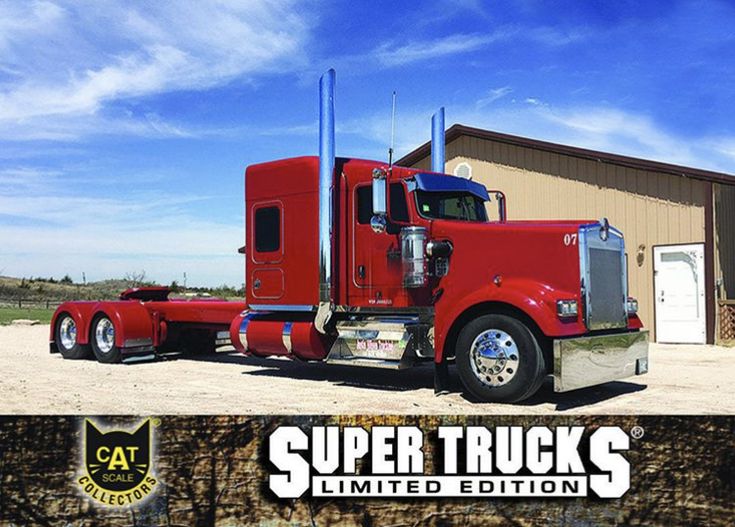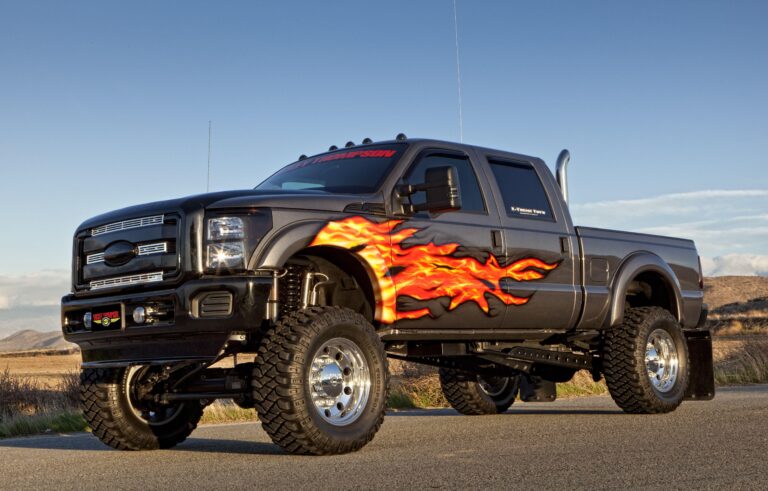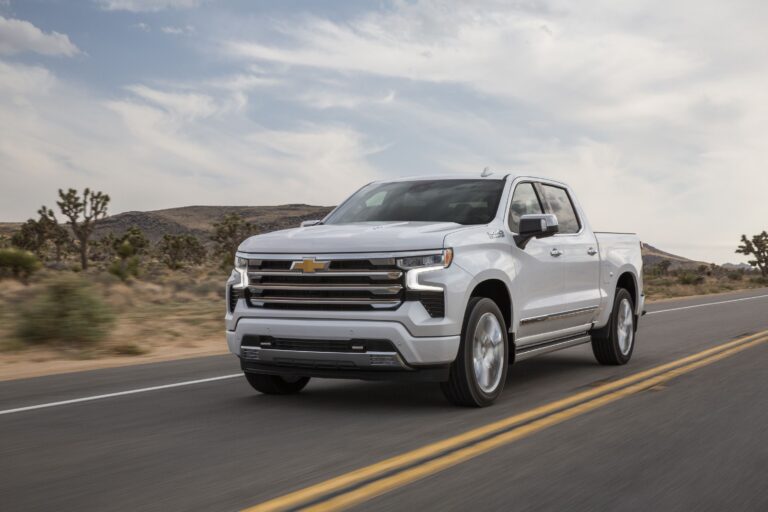2500 Work Trucks For Sale: Your Comprehensive Guide to Heavy-Duty Hauling
2500 Work Trucks For Sale: Your Comprehensive Guide to Heavy-Duty Hauling cars.truckstrend.com
In the world of commercial vehicles and serious hauling, few designations carry as much weight and versatility as the "2500." When you see "2500 Work Trucks For Sale," you’re looking at a class of vehicle that forms the backbone of countless businesses, trades, and ambitious personal projects. These aren’t just bigger versions of your everyday pickup; they are purpose-built machines designed to tackle demanding tasks that would overwhelm lighter trucks, offering a crucial balance of capability, durability, and a more manageable footprint than their larger 3500 counterparts.
Whether you’re a contractor needing to haul heavy equipment, a landscaper transporting bulk materials, a farmer moving livestock trailers, or a weekend warrior with a large RV, a 2500 series truck is often the ideal solution. This comprehensive guide will delve into everything you need to know about 2500 work trucks, from understanding their capabilities to navigating the market and making an informed purchase.
2500 Work Trucks For Sale: Your Comprehensive Guide to Heavy-Duty Hauling
Understanding the "2500" Designation: The Sweet Spot of Capability
The "2500" in a truck’s name, often referred to as a "three-quarter-ton" truck, signifies its classification as a Class 2B heavy-duty pickup. This classification is primarily based on the truck’s Gross Vehicle Weight Rating (GVWR), which is the maximum permissible weight of the vehicle itself, plus its passengers, cargo, and any accessories. For 2500 series trucks, this GVWR typically falls between 8,501 and 10,000 pounds.
This positions the 2500 series perfectly between the lighter-duty 1500 (half-ton) trucks and the even heavier-duty 3500 (one-ton) trucks. While a 1500 might suffice for light towing and casual hauling, a 2500 steps up significantly in terms of payload and towing capacity, thanks to stronger frames, heavier-duty suspension components, more robust braking systems, and often, more powerful engine options. Yet, they generally remain more maneuverable and less cumbersome for daily driving than the larger 3500s, which are often overkill unless you’re consistently maxing out a truck’s capabilities.
Key Manufacturers and Popular Models
The market for 2500 work trucks is dominated by the "Big Three" American manufacturers, each offering formidable options known for their reliability and raw power:
- Ford F-250 Super Duty: A perennial favorite, the F-250 Super Duty is renowned for its immense towing and hauling capabilities, especially when equipped with the Power Stroke diesel engine. Ford’s integrated technology and robust build quality make it a top contender for serious work.
- Ram 2500: Ram trucks, particularly the 2500, are celebrated for their comfortable and well-appointed interiors, even in work-oriented trims. Coupled with the legendary Cummins diesel engine option, the Ram 2500 offers a potent combination of power, durability, and a surprisingly refined ride.
- Chevrolet Silverado 2500HD / GMC Sierra 2500HD: These sister trucks from General Motors offer a strong blend of performance, reliability, and modern features. The Duramax diesel engine is a proven workhorse, and both the Silverado and Sierra 2500HD provide a comfortable ride and capable performance for a wide range of tasks. The Sierra typically offers a more premium aesthetic and feature set.

Types of 2500 Work Trucks Available
When searching for "2500 Work Trucks For Sale," you’ll encounter a vast array of configurations designed to meet specific needs:
- Body Styles:
- Regular Cab: Two doors, single row of seating. Ideal for maximum bed length and lowest cost, often used for dedicated work trucks.
- Extended/Quad Cab: Two full-size front doors and two smaller rear doors (or suicide doors) with limited rear seating. Offers a compromise between passenger space and bed length.
- Crew Cab: Four full-size doors with ample rear seating. Most popular for businesses needing to transport a crew, or for individuals wanting a versatile truck for both work and family.
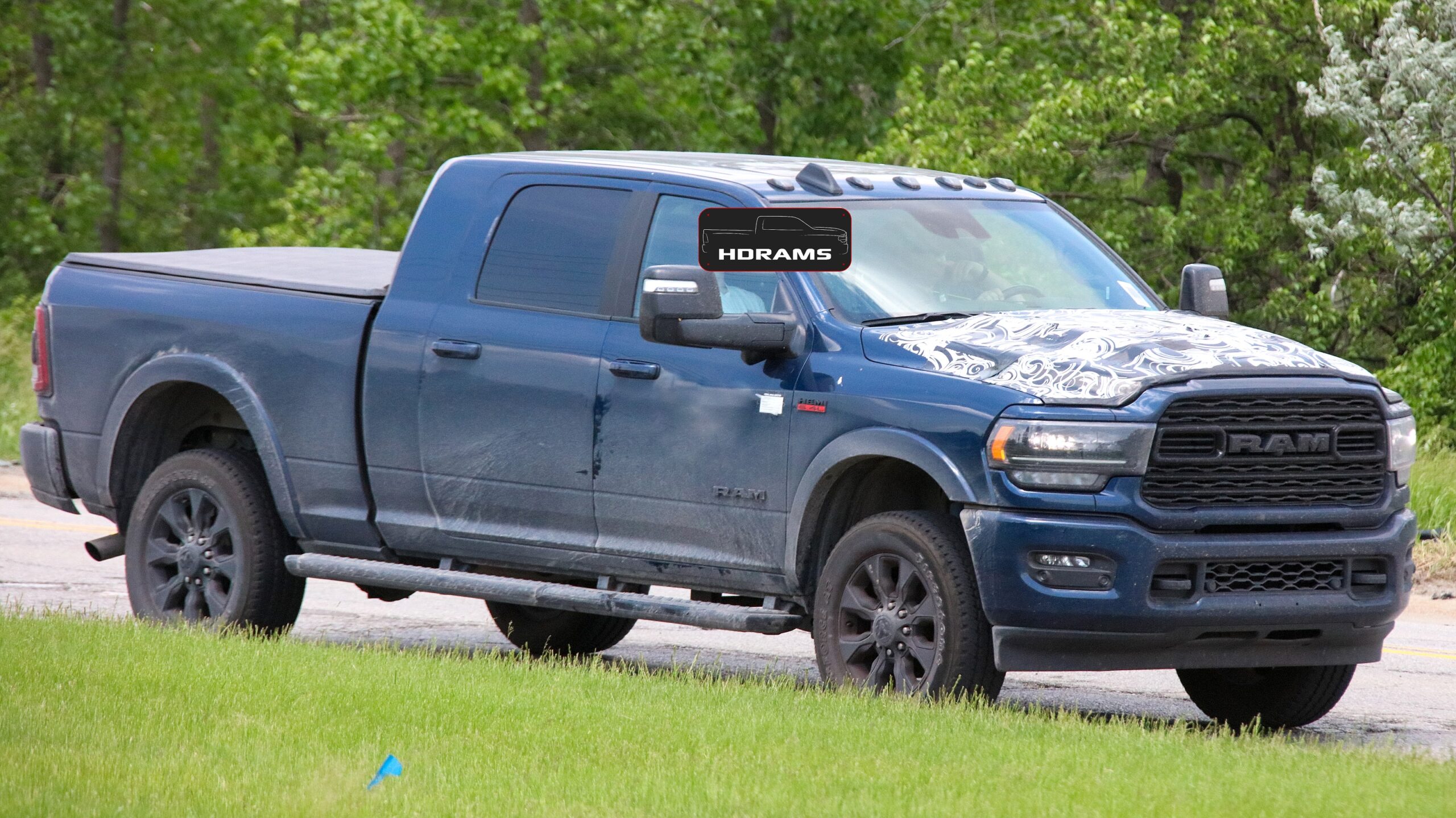
- Bed Lengths:
- Short Bed: Typically around 6.5 feet. Common with Crew Cabs, offering better maneuverability.
- Long Bed: Typically around 8 feet. Essential for hauling longer materials or mounting certain utility bodies.
- Drivetrain:
- 2WD (Two-Wheel Drive): Lighter, slightly better fuel economy, lower cost. Sufficient for paved roads and lighter work.
- 4WD (Four-Wheel Drive): Essential for off-road work sites, snowy conditions, or launching boats. Adds weight, cost, and complexity but vastly increases capability.
- Engine Options: This is perhaps the most critical choice for a 2500:
- Gasoline Engines: Typically large-displacement V8s. Offer lower upfront cost, simpler maintenance, and are often sufficient for moderate towing and hauling. Good for trucks that aren’t consistently towing at maximum capacity.
- Diesel Engines: The gold standard for heavy-duty work (Ford’s Power Stroke, Ram’s Cummins, GM’s Duramax). While more expensive initially, diesels offer superior torque for heavy towing, better fuel efficiency when under load, and exceptional longevity when properly maintained. They are ideal for consistent, heavy-duty applications.
- Specialized Upfits: Many 2500 trucks are sold with or can be customized with specific work-oriented bodies:
- Service Bodies: Compartmentalized storage for tools and equipment.
- Flatbeds: Open platform for hauling oversized or odd-shaped cargo.
- Dump Beds: For hauling and easily offloading loose materials.
- Plow Prep Packages: For snow removal operations.
- Utility Packages: Integrated toolboxes, power inverters, ladder racks.
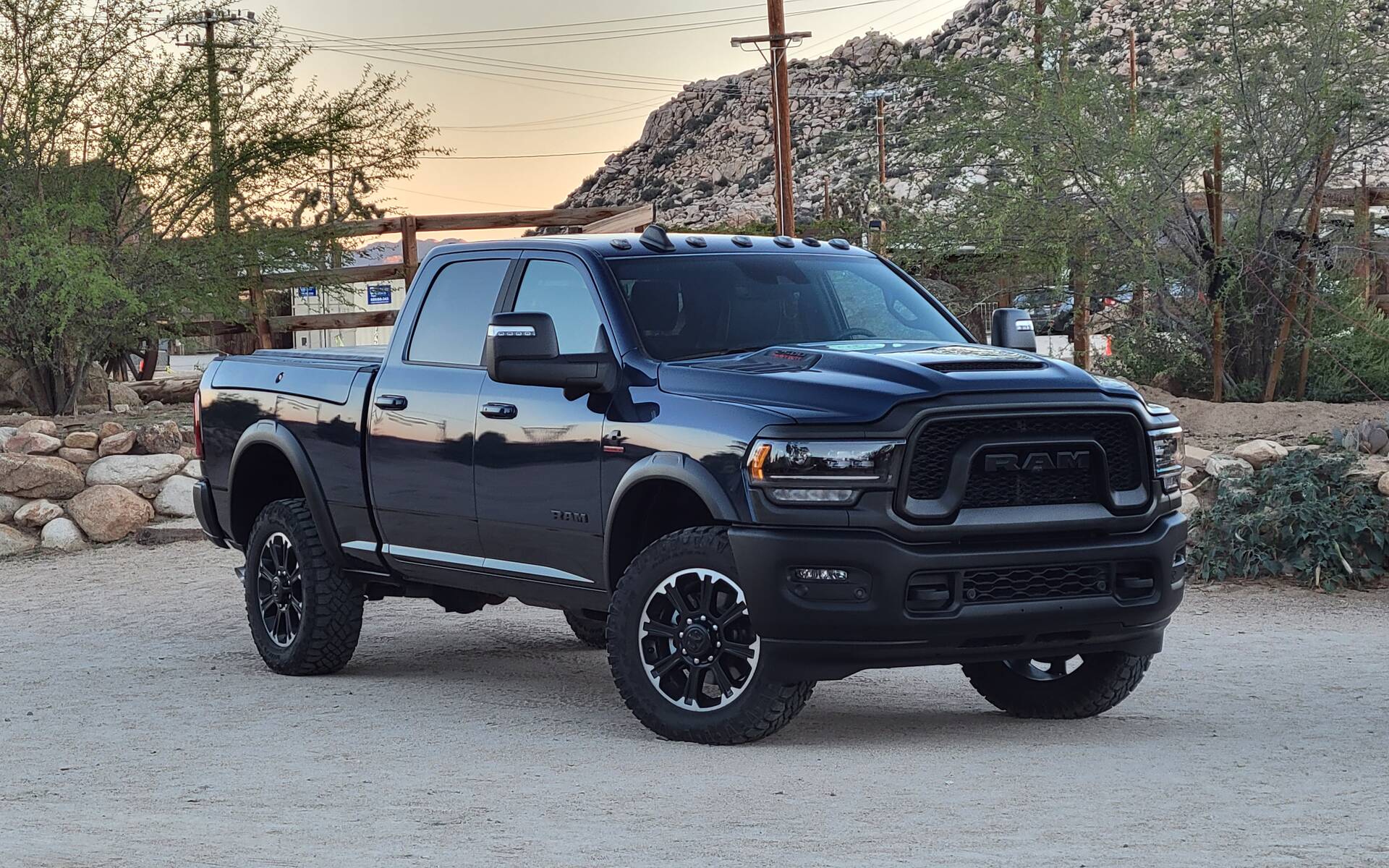
Benefits of Choosing a 2500 Work Truck
Investing in a 2500 series truck offers a multitude of advantages for both businesses and individuals:
- Superior Payload & Towing Capacity: This is the primary reason to choose a 2500. They can handle heavier equipment, larger trailers, and more substantial loads than their 1500 counterparts, often without breaking a sweat.
- Enhanced Durability & Longevity: Built with stronger frames, axles, transmissions, and suspension components, 2500 trucks are designed to withstand the rigors of heavy use and challenging work environments for many years.
- Versatility: From construction and landscaping to plumbing, electrical, agriculture, and even large recreational towing, a 2500 can be configured and adapted to suit a vast array of industrial and personal needs.
- Strong Resale Value: Due to their enduring demand and robust construction, 2500 work trucks tend to hold their value exceptionally well, making them a solid long-term investment.
- Improved Safety Features: With robust braking systems, larger tires, and often advanced towing technologies (integrated brake controllers, trailer sway control, cameras), 2500s provide a safer platform for heavy hauling.
Important Considerations When Buying a 2500 Work Truck
The decision to purchase a 2500 work truck requires careful thought to ensure you get the right vehicle for your specific needs and budget.
- Budget: New vs. Used: New 2500 trucks can be a significant investment, often ranging from $50,000 to well over $90,000 depending on trim and options. Used trucks offer substantial savings but require more scrutiny regarding their condition, mileage, and service history.
- Intended Use: Precisely define what you will be hauling or towing. How heavy? How often? What kind of terrain will you traverse? This will guide your choices on engine, drivetrain, and specific features.
- Gas vs. Diesel Engine:
- Gas: Lower initial cost, simpler maintenance, quicker warm-ups. Good for intermittent heavy use or lighter loads.
- Diesel: Higher initial cost, more complex (and potentially expensive) maintenance, but unparalleled torque for heavy towing, better fuel economy under load, and often longer lifespan. Essential for frequent, heavy hauling.
- Maintenance & Operating Costs: Beyond fuel, consider tire costs (larger, heavy-duty tires are more expensive), routine maintenance (diesel engines have specific requirements like DEF fluid and more frequent fuel filter changes), and potential repair costs for specialized components.
- Condition (for used trucks): Thoroughly inspect for rust (especially on the frame and suspension components), evidence of accidents, worn tires, and fluid leaks. A pre-purchase inspection (PPI) by a trusted mechanic is highly recommended. Always request service records.
- GVWR & GCWR Compliance: Understand the Gross Vehicle Weight Rating (GVWR) and Gross Combined Weight Rating (GCWR – truck + trailer + cargo). Ensure the truck’s capacities legally meet your anticipated loads to avoid fines and ensure safety.
- Essential Features: Look for integrated trailer brake controllers, heavy-duty hitches, tow mirrors, bed liners, power outlets, and comfortable interior ergonomics, especially if you’ll be spending long hours in the cab.
Where to Find 2500 Work Trucks For Sale
The market for 2500 work trucks is robust, offering several avenues for purchase:
- Authorized Dealerships: Ideal for new trucks, certified pre-owned (CPO) vehicles, and often have a good selection of used models. They offer financing, warranties, and service.
- Online Marketplaces: Websites like AutoTrader, Cars.com, CarGurus, eBay Motors, and even local classifieds (Craigslist, Facebook Marketplace) offer a vast inventory from both dealers and private sellers.
- Commercial Vehicle Sales Specialists: Many dealerships specialize solely in commercial trucks, offering a wider range of work-ready configurations and upfits.
- Auctions: Government, fleet, and public auctions can be sources for good deals, but they often come with higher risk as vehicles are typically sold "as-is" with limited inspection opportunities.
- Direct from Private Sellers: Can offer lower prices as there’s no dealership overhead, but requires more diligence in verifying the vehicle’s condition and history.
Tips for a Successful Purchase
- Define Your Needs Clearly: Before you even start looking, list out your absolute requirements for payload, towing, seating, and specialized features.
- Set a Realistic Budget: Include not just the purchase price but also potential taxes, registration, insurance, and immediate maintenance.
- Thorough Inspection: For used trucks, visually inspect every aspect. Look underneath, check for fluid leaks, test all lights and features. If possible, bring a knowledgeable friend or a mechanic.
- Test Drive Extensively: Drive on various road types. If you’ll be towing, try to test drive with a load similar to what you’ll be hauling. Listen for unusual noises from the engine, transmission, or suspension.
- Research Common Issues: Every make and model has known quirks or common problems. Research these for the specific year and model you’re considering.
- Negotiate: Always be prepared to negotiate the price, especially for used vehicles.
- Vehicle History Report: Always get a CarFax or AutoCheck report for any used truck. This will reveal accident history, previous owners, service records, and title issues.
Potential Challenges and Solutions
- High Upfront Cost: Solution: Explore financing options, consider a well-maintained used truck, or lease if it fits your business model.
- Fuel Economy: Solution: While 2500s aren’t fuel sippers, diesel engines offer better efficiency under load. Proper maintenance and smart driving habits can also help.
- Maintenance Complexity/Cost: Solution: Adhere strictly to the manufacturer’s maintenance schedule. Find a reputable mechanic specializing in heavy-duty trucks, especially for diesels. Factor these costs into your budget.
- Parking/Maneuverability: Solution: Consider a shorter bed or cab configuration if tight spaces are a regular concern. Utilize rearview cameras and parking sensors, if available.
Estimated Price Ranges for 2500 Work Trucks For Sale
Prices for 2500 work trucks vary dramatically based on year, mileage, condition, trim level, engine choice, and geographical location. The table below provides estimated price ranges to give you a general idea. Always verify current market values for specific models.
| Category | Make/Model | Estimated Price Range (USD) | Key Factors Influencing Price |
|---|---|---|---|
| New Trucks | Ford F-250 Super Duty | $50,000 – $95,000+ | Trim level (XL to Platinum), Engine (Gas/Diesel), Drivetrain (2WD/4WD), Optional Packages (Towing, Off-Road, Tech) |
| Ram 2500 | $50,000 – $90,000+ | Trim level (Tradesman to Limited), Engine (Gas/Diesel), Drivetrain, Cab/Bed Configuration, Luxury Features | |
| Chevy Silverado 2500HD | $50,000 – $88,000+ | Trim level (WT to High Country), Engine (Gas/Diesel), Drivetrain, Cab/Bed, Towing Tech, Interior Upgrades | |
| GMC Sierra 2500HD | $55,000 – $92,000+ | Trim level (Pro to Denali Ultimate), Engine (Gas/Diesel), Drivetrain, Premium Features, Appearance Packages | |
| Used Trucks | Ford F-250 Super Duty (3-5 yrs old) | $35,000 – $65,000 | Mileage, Condition, Engine Type, Trim Level, Maintenance History, Location |
| Ram 2500 (3-5 yrs old) | $33,000 – $60,000 | Mileage, Condition, Engine Type, Trim Level, Maintenance History, Accident History | |
| Chevy Silverado 2500HD (3-5 yrs old) | $32,000 – $58,000 | Mileage, Condition, Engine Type, Trim Level, Maintenance History, Rust/Wear | |
| GMC Sierra 2500HD (3-5 yrs old) | $35,000 – $62,000 | Mileage, Condition, Engine Type, Trim Level, Premium Features, Aftermarket Mods | |
| Older Used Trucks | (5+ years old, higher mileage) | $15,000 – $35,000+ | High variability based on overall condition, engine health, frame integrity, and specific model year reputation. |
Frequently Asked Questions (FAQ) about 2500 Work Trucks
Q1: What’s the main difference between a 1500 and a 2500 truck?
A1: The primary difference lies in their payload and towing capacities, stemming from stronger frames, heavier-duty suspension, axles, and braking systems in the 2500. A 2500 is designed for significantly heavier loads and more demanding tasks than a 1500.
Q2: Should I get a gas or diesel 2500?
A2: If you consistently tow very heavy loads (e.g., large RVs, heavy equipment trailers) or plan to use the truck for commercial purposes that require maximum torque and fuel efficiency under load, a diesel is generally the better choice. For lighter, occasional towing or if upfront cost and simpler maintenance are priorities, a gas engine might suffice.
Q3: How much can a 2500 typically tow?
A3: Towing capacities vary widely by manufacturer, engine, and configuration, but most modern 2500 trucks can tow between 15,000 to over 20,000 pounds (conventional towing) when properly equipped. Fifth-wheel/gooseneck towing capacities are often even higher. Always check the specific truck’s rating.
Q4: What is GVWR and why is it important?
A4: GVWR (Gross Vehicle Weight Rating) is the maximum permissible weight of the fully loaded truck (vehicle + passengers + cargo + accessories). It’s crucial for safety and legal compliance. Exceeding your truck’s GVWR can lead to fines, reduced braking performance, compromised handling, and accelerated wear on components.
Q5: Is it worth buying a high-mileage 2500?
A5: For diesel 2500 trucks, high mileage (e.g., 200,000+ miles) can still be acceptable if the truck has a documented history of consistent and proper maintenance. Gasoline engines generally have a shorter lifespan. Always get a pre-purchase inspection and a vehicle history report.
Q6: What maintenance is typically more expensive on a diesel 2500?
A6: Diesel trucks often have more expensive oil changes (larger oil capacity, specialized oil), require Diesel Exhaust Fluid (DEF), and have more complex fuel filtration systems. Injectors, turbos, and emissions system components can also be costly to repair if they fail.
Q7: Can a 2500 be used as a daily driver?
A7: Yes, many people use 2500 trucks as daily drivers, especially Crew Cab models. However, they are larger, less fuel-efficient than lighter vehicles, and can be more challenging to park and maneuver in urban environments. The ride quality is generally stiffer than a 1500 due to the heavy-duty suspension.
Conclusion
The market for "2500 Work Trucks For Sale" represents a vital segment for anyone serious about capability, durability, and versatility. These 3/4-ton trucks offer a compelling blend of heavy-duty performance without the full bulk of a one-ton, making them ideal for a vast array of professional and personal applications.
By carefully considering your specific needs, researching the available models and configurations, conducting thorough inspections, and understanding the associated costs, you can confidently navigate the market. Investing in the right 2500 work truck means acquiring a reliable, powerful partner that will serve you faithfully for years to come, helping you conquer the toughest jobs with ease.



